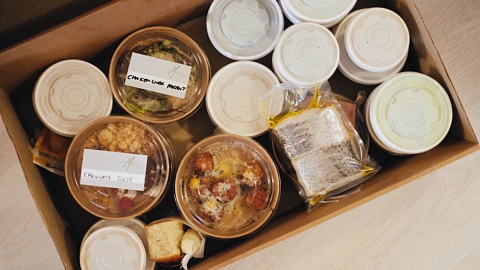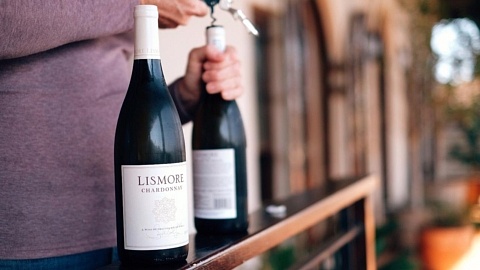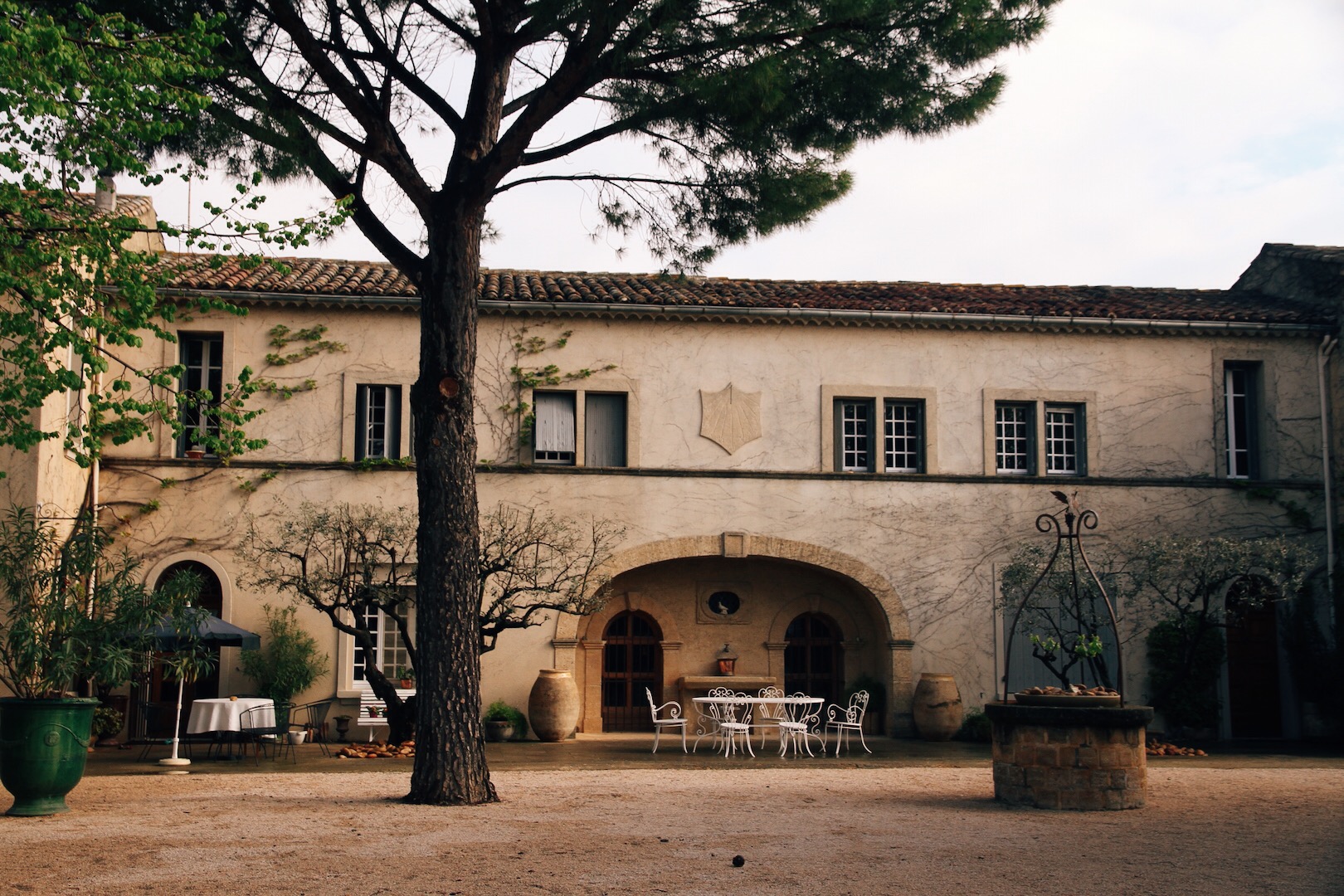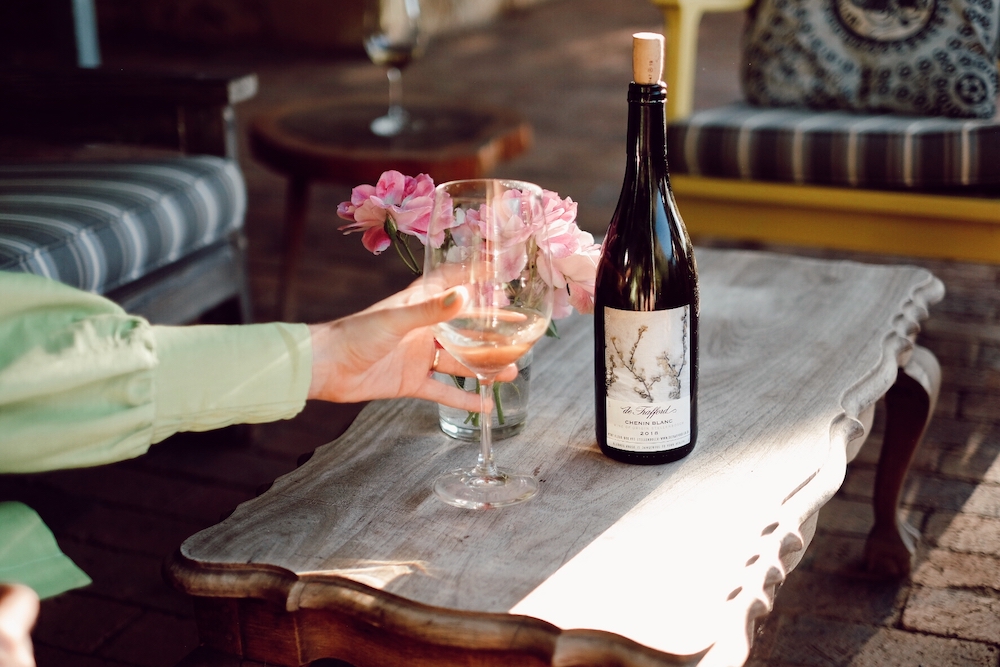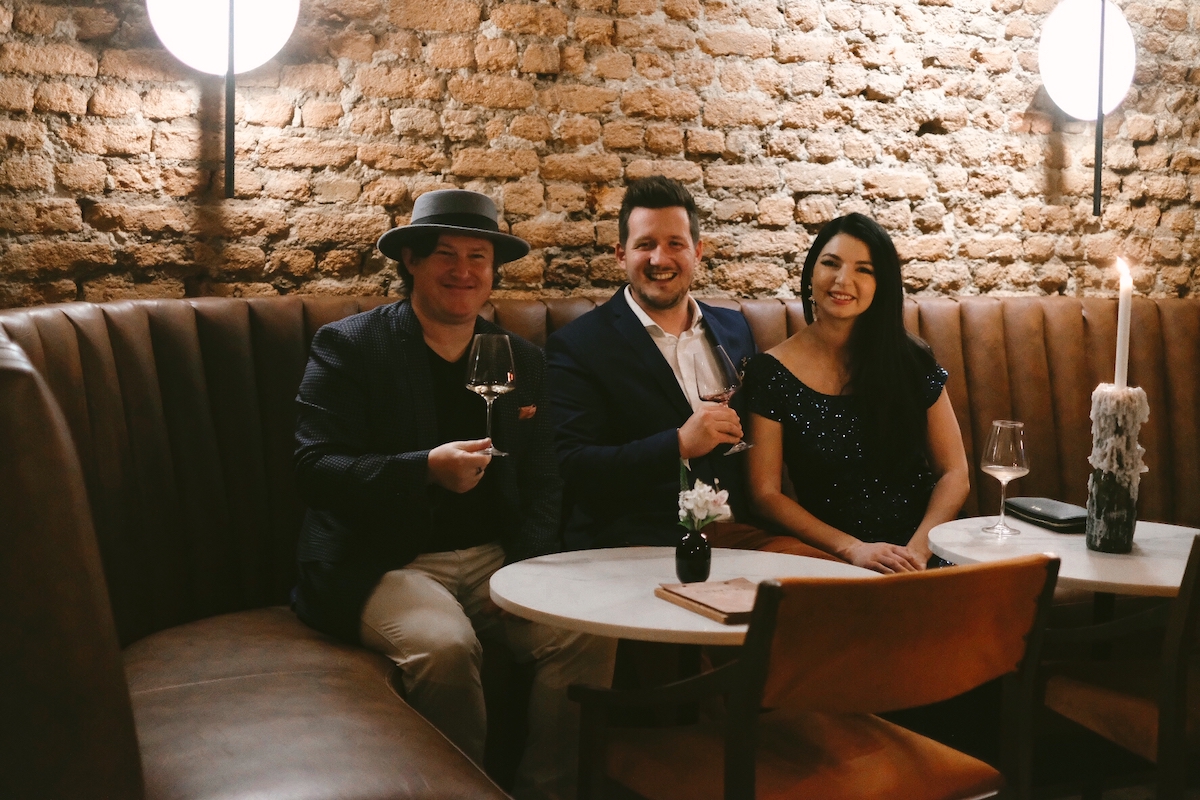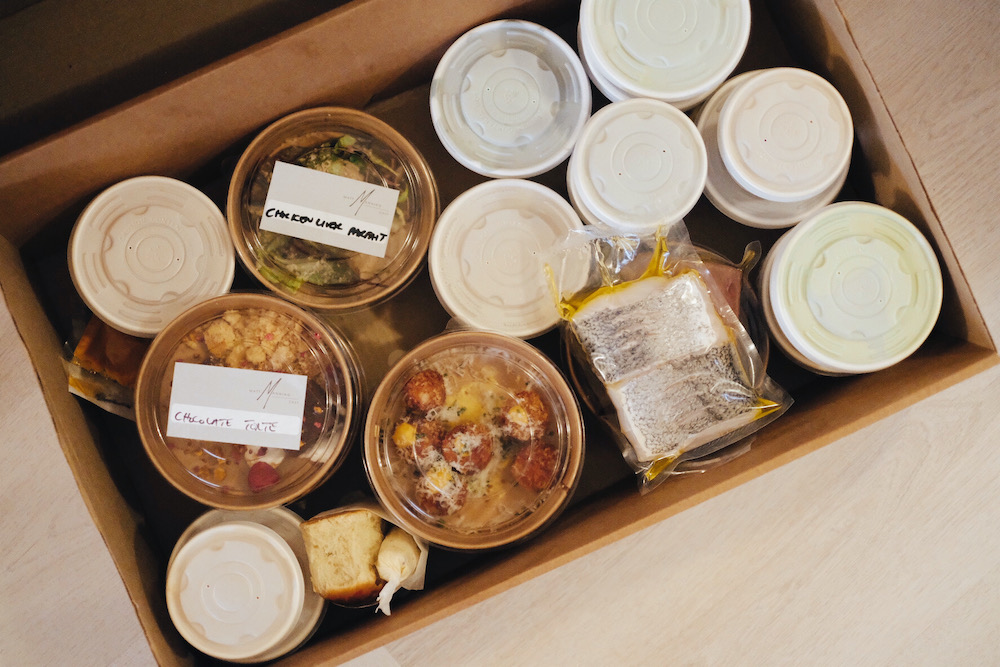“Few people can say that they annoyed their winemaker so much that they left,” laughs Emma Bruwer, who recently stepped into Paul Gerber’s shoes as head winemaker of Le Lude in Franschhoek.
Emma meets me in the graciously furnished Le Lude tasting room on a warm Autumn afternoon in the wine region, which is particularly abuzz with Franschhoek Literary Festival-goers, adding a dose (or perhaps more appropriately, a dosage) of fine wine culture to their weekend activities.
KEYS TO THE CELLAR
According to Emma, who had the keys to the cellar bestowed upon her after three years as Assistant Winemaker, not much has changed at the acclaimed MCC producer since Paul’s departure at the end of February. “When you take over winemaking responsibilities, you work with someone else’s wine for a long time,” explains Emma. “Paul was still with us this past harvest… Though he didn’t do much!” she laughs. “I do miss him, though. It’s quiet in the cellar. There’s nobody to joke with.”
As if the 2020 harvest didn’t feel far away enough, the winery’s flagship cuvée is currently on the 2012 vintage, so realistically, the public might only experience Emma’s solo take on Le Lude in the mid-to-late 2020s.
She seems unfazed by this. “Everything I know, I’ve learned from Paul. He’s had me very involved since day one. And we’ve always had a shared vision for the wines.”
WINE HEIRESS
One should not be fooled by Emma’s humility: she’s no stranger to the industry, being the youngest daughter of Springfield’s Bruwer family. “Growing up in Robertson and growing up on a wine farm, there’s very small chance of you not going into the wine industry,” she says, matter-of-factly.
Many millennials assuming such a significant role would be hell-bent on making their mark. Emma’s outlook is refreshing. Rather than possessing a burning need to see her name in lights, Emma is devoted to honouring the stylistic integrity of the house. She’s also more interested in talking about the wines than about herself, gently moving away from my personal questions with a gesture to the three effervescent flutes in front of us.
NON-VINTAGE BRUT
“At tastings we always try to show our Non-Vintage Brut. The idea with the brand for Le Lude is to have a non-vintage wine that’s always on the market, that’s always very constant… if you pick up a bottle of Le Lude, you don’t really want to see what year it is, or which winemaker made it, technically. You want to know that what you’re going to get is the same. The idea with the Non-Vintage is to highlight what we as a house stand for, and what has inspired us to make the wines that we make. We’re always tasting Champagnes, specifically the smaller growers and houses that have the same philosophy as ours about making wines that are ageable, and that have length and great purpose on your palate.”
Ageability, length and purpose: these three tenets are evident from the very first sip. Emma explains how the Brut’s 60% Chardonnay component provides structure and fine acidity: “with Chardonnay in your blend, you have a backbone that you can build anything around.” This ‘backbone’ is fleshed out with 40% Pinot Noir, which provides fruit, body and a softer, rounder feel.
NON-VINTAGE ROSÉ
The Non-Vintage Rosé is the Brut’s alter ego, with 60% Pinot Noir and 40% Chardonnay. Emma explains that Pinot Noir ages a bit more quickly than Chardonnay, so it evokes the impression of an older wine. “They’re two very different wines,” comments Emma. “But the common thread is that length on your palate, that acidity and that freshness. We make very clean-cut wines, using only the cuvée fractions [the juice recovered with the least amount of pressure] of the press juice, so that we can keep it very clean and very simple.”
MÉTHODE CHAMPENOISE
Echoing the practice of multi-region blending in Champagne, Le Lude’s grapes are sourced from Robertson, Bonnievale, Franschhoek, Stellenbosch and even the outlying region of Plettenberg Bay.
“Franschhoek has a great climate for tasting rooms, not for MCC,” teases Emma. I’m most intrigued about the Plett grapes. She elaborates: “Plett has this mist that hangs until about ten o’clock in the morning, and it cools down again at night, even during peak Summer. That’s something quite similar to Champagne in climate. Cooling nights slow down the ripening process – we pick these grapes about a month after everything else. That said, our climate will never be like Champagne. MCC producers saying they’re trying to make a Champagne is foolish. We’re never going to recreate it; we’re never going to have that length and that acidity. But what we can try is to learn their philosophies and learn their ideas,and incorporate them into our winemaking. The main difference between us and Champagne is that they have ageability by default, because of their acidity. We have to work a lot harder in our climate to have an aged vintage with acidity.”
AGRAFE METHOD
And work hard they do at Le Lude. Their precision winemaking extends to having been the first South African MCC producer to use the traditional agrafe method, whereby the bottle is sealed with a cork closure for its second fermentation, instead of with a crown cap, which is general practice. A portion of each blend is made in this manner and released alongside its ‘standard’ counterpart, making it possible to compare them side-by-side. Emma’s rationale is that “it gives your wine more layers… It increases that complexity and roundness of your wine, without making it heavy, or taking away from the freshness. We find that the bubble from the agrafe method is more stable.”
VINTAGE CUVÉE
The pièce de résistance of my tasting with Emma is the Chardonnay-dominant (80%, of which 9% is barrel fermented) 2012 Vintage Cuvée, which I quickly discover is tasting as fresh as a daisy, despite its extended ageing both pre- and post-degorgement. “Ageability is something we’re trying to change in MCC. I think it’s the difference between us and most MCCs. It’s something we hold very true to ourselves. It’s why Champagne has done so well – you can have something from the eighties, that’s still so lively, and so fresh.”
LOOKING INTO THE CRYSTAL BALL
I ask Emma if she plans to return to the family farm in Robertson one day. No surprises, her answer is a resolute ‘yes.’ “Of all the different areas we buy from [at Le Lude], let’s say 70% come from Robertson alone. It’s a great area for MCC. And Springfield makes very good Chardonnay.” She pauses thoughtfully. “Also, to look at something my father’s worked so hard for, and say ‘no thank you’, is rather selfish… Though going to Springfield one day, I’ll never have this kind of control over it. You’re working with five other family members who all have a say. It’s a much bigger farm.”
While an Emma Bruwer/Springfield MCC is on the table for the future, for now, Emma is happy at the helm of Le Lude. She speaks glowingly of a recent tasting with Anthony Mueller of The Wine Advocate, one of the world’s most respected wine critics. “He said that the wines are very focused, that there’s a lot of vision in these wines and it’s something he doesn’t see very often in the MCCs in South Africa,” beams Emma.
Our time is sadly up. It’s been all too easy to pass an hour with Emma, who has the effortless ability to render technical winemaking information understandable, with plenty of anecdotes and good humour blended in. After a look around the immaculate cellar, I leave Le Lude late that afternoon, somewhat lighter (possibly from the effects of the bubbles), convinced that for both Emma and the winery, an effervescent future beckons.
Words and images: Kristen Duff
Shop the story over at Port2Port



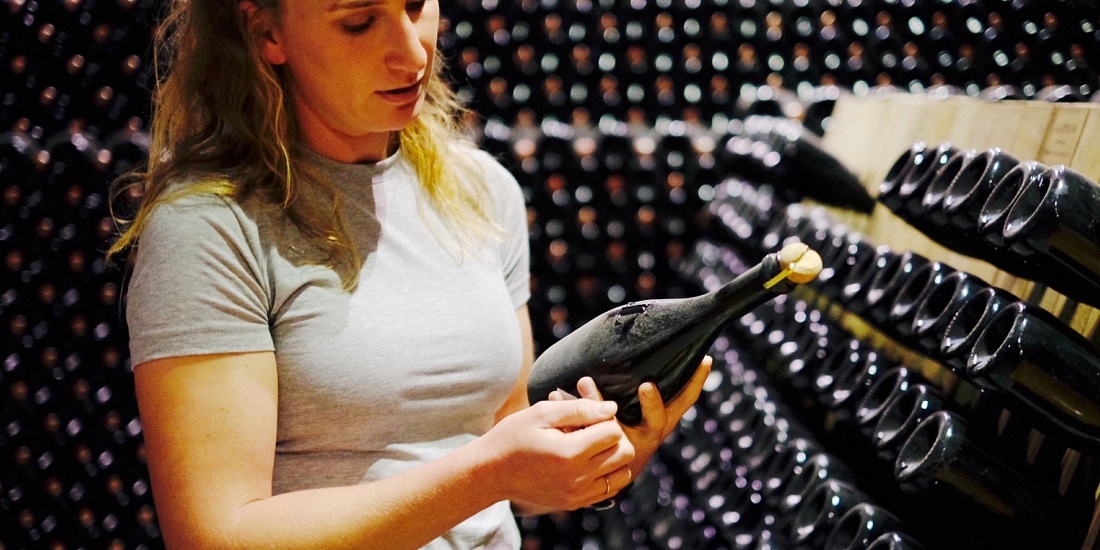
.jpg)
